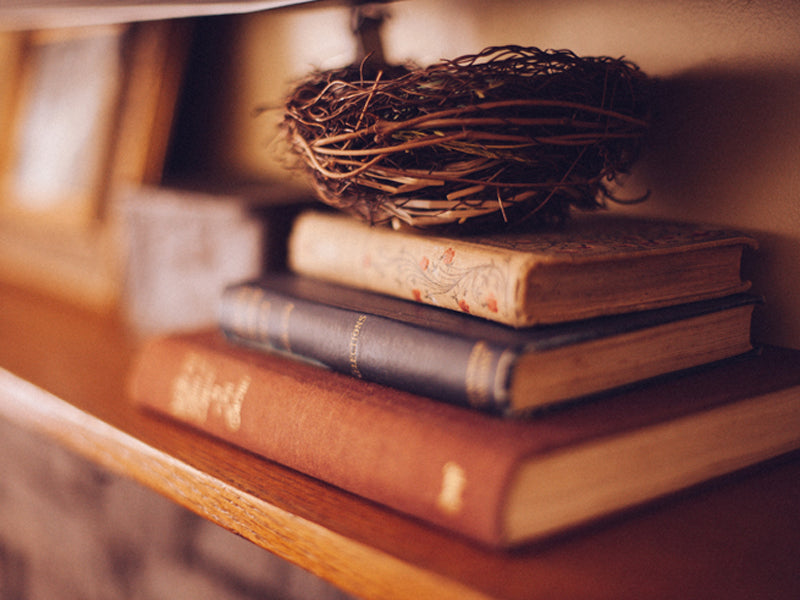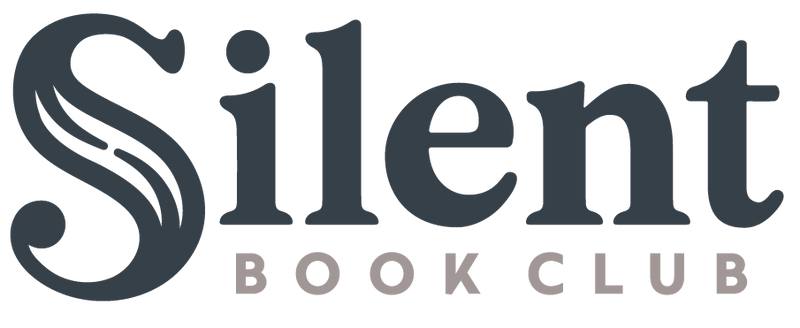April is Poetry Month

To close out poetry month this year (and give you a TBR to last you through next April), Sharon K, the host of Silent Book Club's Portland, Maine chapter teamed up with fellow member Laura T. to compile a list of influential poets whose writing spans the centuries yet remains powerfully relevant today. As U.S. Poet Laureate Tracy K. Smith writes,
“Poetry surprises and deepens our sense of the ordinary. Poetry tells us that the world is full of wonder, revelation, consolation, and meaning.”
What does poetry mean to you? What does poetry do to you?
Hafiz - pen name Shams-ud-din Muhammad gave himself, also spelled Hafez (approximately 1320 – 1389) The most beloved poet of Persia and modern-day Iran. When he died he was thought to have written over 5,000 poems, of which fewer than 700 have survived.
THE SUN NEVER SAYS
Even
After
All this time
The sun never says to the earth,“You owe
Me.”Look
What happens
With a love like that,
It lights the
Whole
Sky.
Henry David Thoreau (1817 – 1862) Wrote about nature and the conduct of life, was an important member of the philosophical movement known as Transcendentalism.
"I went to the woods because I wished to live deliberately, to front only the essential facts of life, and see if I could not learn what it had to teach, and not, when I came to die, discover that I had not lived."
— From Walden
Anatole France (1844 – 1924) Awarded the Nobel Prize in Literature in 1921. The son of a bookseller he went on to a successful career as a French poet, journalist, (popular) novelist and playwright. Most of his work is in French, but some has been translated into English.
"Until one has loved an animal, a part of one's soul remains unawakened."
Edna St. Vincent Millay (1892 – 1950) She received the Pulitzer Prize for Poetry in 1923 for her poem "Ballad of the Harp-Weaver," a tribute to the single mother who had raised her. She is perhaps most famous for this piece of poetry:
My candle burns at both ends; it will not last the night; but ah, my foes, and oh, my friends — it gives a lovely light!
— From Figs from Thistles
Langston Hughes (1902 – 1967) "My writing," he said, "has been largely concerned with the depicting of Negro life in America." He was a hero of the Harlem Renaissance.
W.H. Auden (1907 – 1973) Was often called the greatest living poet of the English language, won the Pulitzer Prize for Poetry in 1948 for his collection of poetry in The Age of Anxiety.
Gwendolyn Brooks (1917 – 2000) First African American poet to win the Pulitzer Prize for Poetry in 1950 for her collection Annie Allen.
Robert Hayden (1913 – 1980) Was the Poet Laureate of the United States between 1976- 1978.
Maya Angelou (1928 – 2014) An acclaimed American poet, storyteller, activist, and autobiographer, she was awarded the 2010 Presidential Medal of Freedom.
Adrienne Rich (1929 – 2012) Feminist thinker, anti-war activist. Won the National Book Award in 1973 for her collection of poetry titled Diving into the Wreck: Poems 1971-1972.
Ted Hughes (1930 – 1998) Though best known as Sylvia Plath’s husband, he was a renowned poet in his own right. His award-winning poetic work, Birthday Letters (1998) explored their complex relationship.
Audre Lorde (1934 – 1992) A self-described “black, lesbian, mother, warrior, poet.”
"I have been woman / for a long time / beware my smile / I am treacherous with old magic / and the noon's new fury / with all your wide futures / promised / I am / woman / and not white."
— From A Woman Speaks
Mary Oliver (1935 – ) Has won the National Book Award for Poetry and the Pulitzer Prize for Poetry. “Mary Oliver’s poetry is an excellent antidote for the excesses of civilization," wrote one reviewer for the Harvard Review, “for too much flurry and inattention, and the baroque conventions of our social and professional lives. She is a poet of wisdom and generosity whose vision allows us to look intimately at a world not of our making.”
Tell me, what is it you plan to do with your one wild and precious life? — From "The Summer Day"
Clarence Major (1936 – ) Writes about life as a Southern African-American.
He glides, descending / to the forest floor — / his round face / like an African / mask, carved out / of soft wood.
— From The Great Horned Owl
Louise Gluck (1943 – ) Won the Pulitzer Prize for Poetry in 1993 for her collection of poetry in The Wild Iris and was nominated for The Seven Ages in 2003.
"How alone I am, but in music / my desolation is my rejoicing"
— From Nocturne
Eileen Myles (1949 – ) Feminist, performance artist. Gave her first reading at the famous music club CBGB.
Claudia Rankine (1963 – ) Recipient of MacArthur Fellows Program “Genius Grant” in 2016.
Carmen Gimenez Smith (1971 – ) Her work explores issues affecting the lives of females, including Latina identity.
Noor Unnahar (dates N/A) Is a modern-day artist and poet whose work combines hand-written text, tactile collage, and photography to illuminate themes of hope, home, self-love, culture, acceptance, and survival. Check out her recently released debut Yesterday I Was the Moon.
Emily Van Kley (dates N/A) Author of the recently released collection titled The Cold and the Rust Smell.
For further reading…
Poetry Websites
https://www.poetryfoundation.org (The Poetry Foundation)
https://www.poets.org (The Academy of American Poets)
www.favoritepoem.org (The Favorite Poem Project, submitted by people from all walks of life)
Books…
Angels of Ascent, a Norton Anthology of Contemporary African American Poety edited by Charles Henry Rowell
The Gift, Poems by Hafiz the Great Sufi Master, translations by Daniel Ladinsky
– Recommendations compiled by Portland Maine Silent Book Club host Sharon K., with contribution from Laura T. (member of Portland, Maine SBC)
